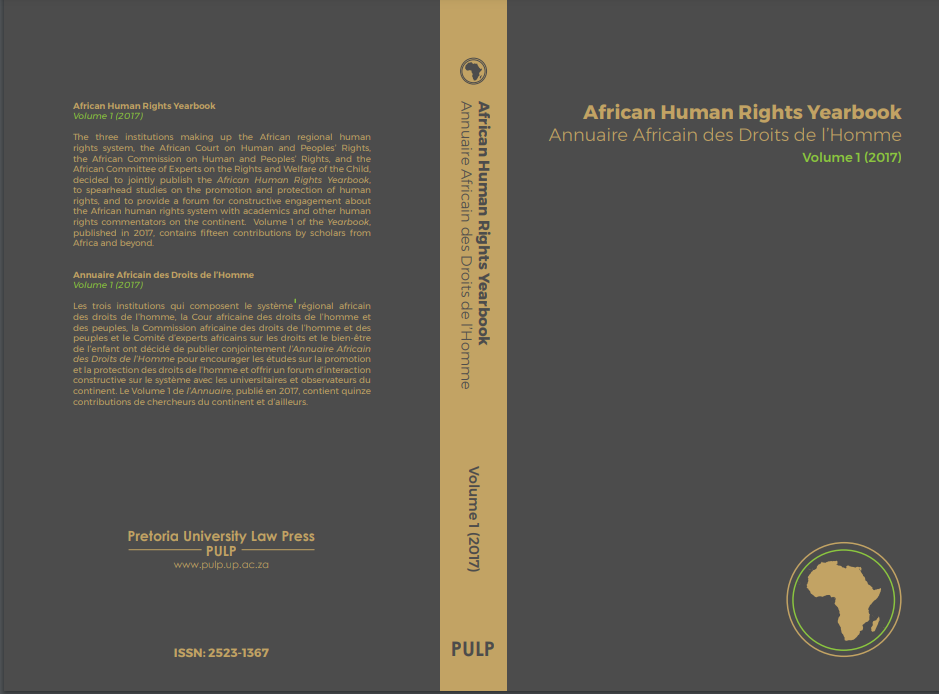Article 6 of the African Women’s Rights Protocol: towards the protection of the rights of women in polygamous marriages
DOI:
https://doi.org/10.29053/2523-1367/2017/v1n1a14Keywords:
Article 6 of the African Women’s Rights Protocol, polygamy, the rights of women, the right to marriage, polygamous marriagesAbstract
ABSTRACT: Article 6 of the Protocol to the African Charter on Human and People’s Rights on the Rights of Women in Africa (African Women’s Rights Protocol) provides that State Parties shall enact legislation to ensure inter alia that the rights of women in marriage and family, including in polygamous marital relationships, are promoted and protected. However, the United Nations Human Rights Committee, in its interpretation of article 3 of the International Covenant on Civil and Political Rights (ICCPR), stated that polygamy amounted to a violation of the rights of women and therefore ought to be abolished. This raises an interesting issue since on one hand, the African Women’s Rights Protocol provides for the protection of the rights of women in polygamous marriages, but on the other hand, the Human Rights Committee, which is an overseer of the implementation of a global human rights regime, has held that polygamy is an inadmissible violation of the rights of women. Apart from the two issues above, article 6 also raises fundamental questions such as: What are the rights of women in polygamous marriages and why it is critical to protect such rights? This article analyses the above issues and makes the general argument that, in line with article 6 of the African Women’s Rights Protocol, pending the outlaw of polygamy (which is also in line with international best practice), African states should legislate to protect women in polygamous marriages.
TITRE ET RÉSUMÉ EN FRANÇAIS: Article 6 du Protocole relatif aux droits des femmes en afrique: vers la protection des droits des femmes dans les mariages polygamiques RÉSUMÉ: L’article 6 du Protocole à la Charte africaine des droits de l’homme et des peuples relatif aux droits des femmes en Afrique (Protocole relatif aux droits des femmes en afrique) stipule que les Etats parties doivent promulguer des lois garantissant, entre autres, la promulgation et la protection des droits des femmes dans le mariage et au sein la famille, y compris dans des relations conjugales polygamiques. Toutefois, dans son interprétation de l’article 3 du Pacte international relatif aux droits civils et politiques (PIDCP), le Comité des droits de l’homme des Nations Unies a déclaré que la polygamie constituait une violation des droits des femmes et devait donc être abolie. Cela soulève un problème intéressant puisque d’une part, le Protocole relatif aux droits des femmes en Afrique prévoit la protection des droits des femmes dans les mariages polygamiques, mais d’autre part, le Comité des droits de l’homme, qui supervise la mise en œuvre du système global des droits de l’homme, a déclaré que la polygamie est une violation inacceptable des droits des femmes. Outre les deux points ci-dessus, l’article 6 soulève également des questions fondamentales telles que: quels sont les droits des femmes dans les mariages polygamiques et pourquoi est-il essentiel de protéger ces droits? Cet article analyse les questions ci-dessus et propose que, conformément à l’article 6 du Protocole relatif aux droits des femmes en afrique, en attendant l’interdiction de la polygamie (qui est également conforme aux meilleures pratiques internationales), les États africains doivent adopter des lois pour protéger les femmes dans des mariages polygamiques.


